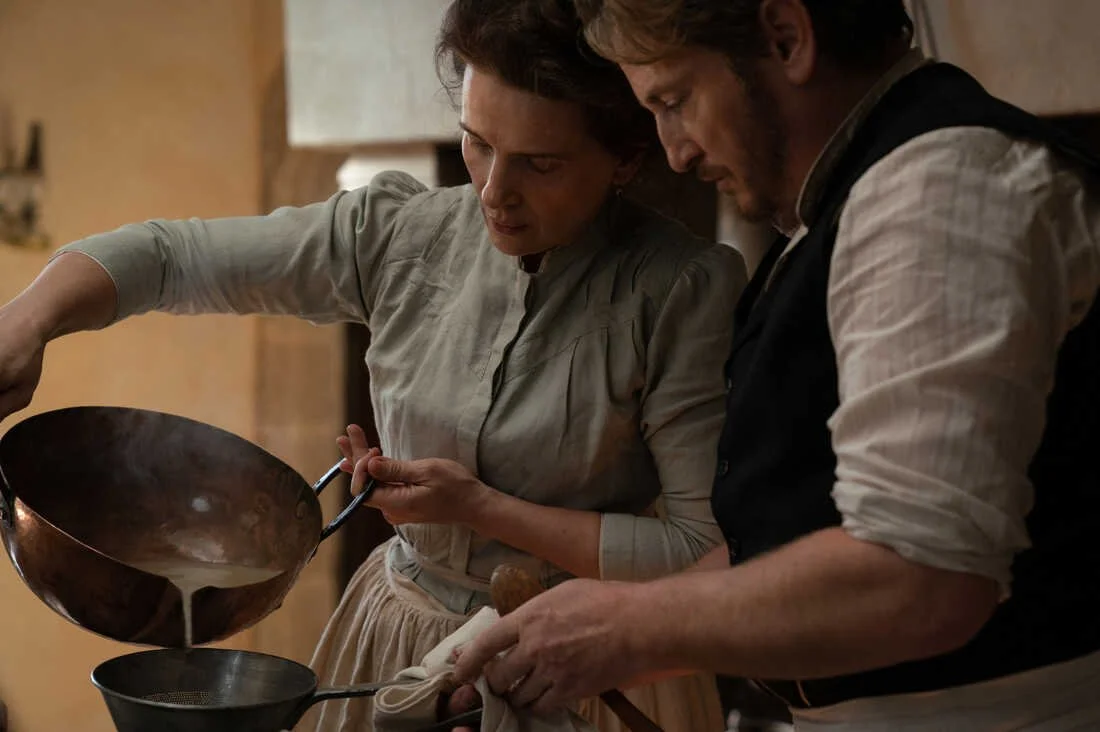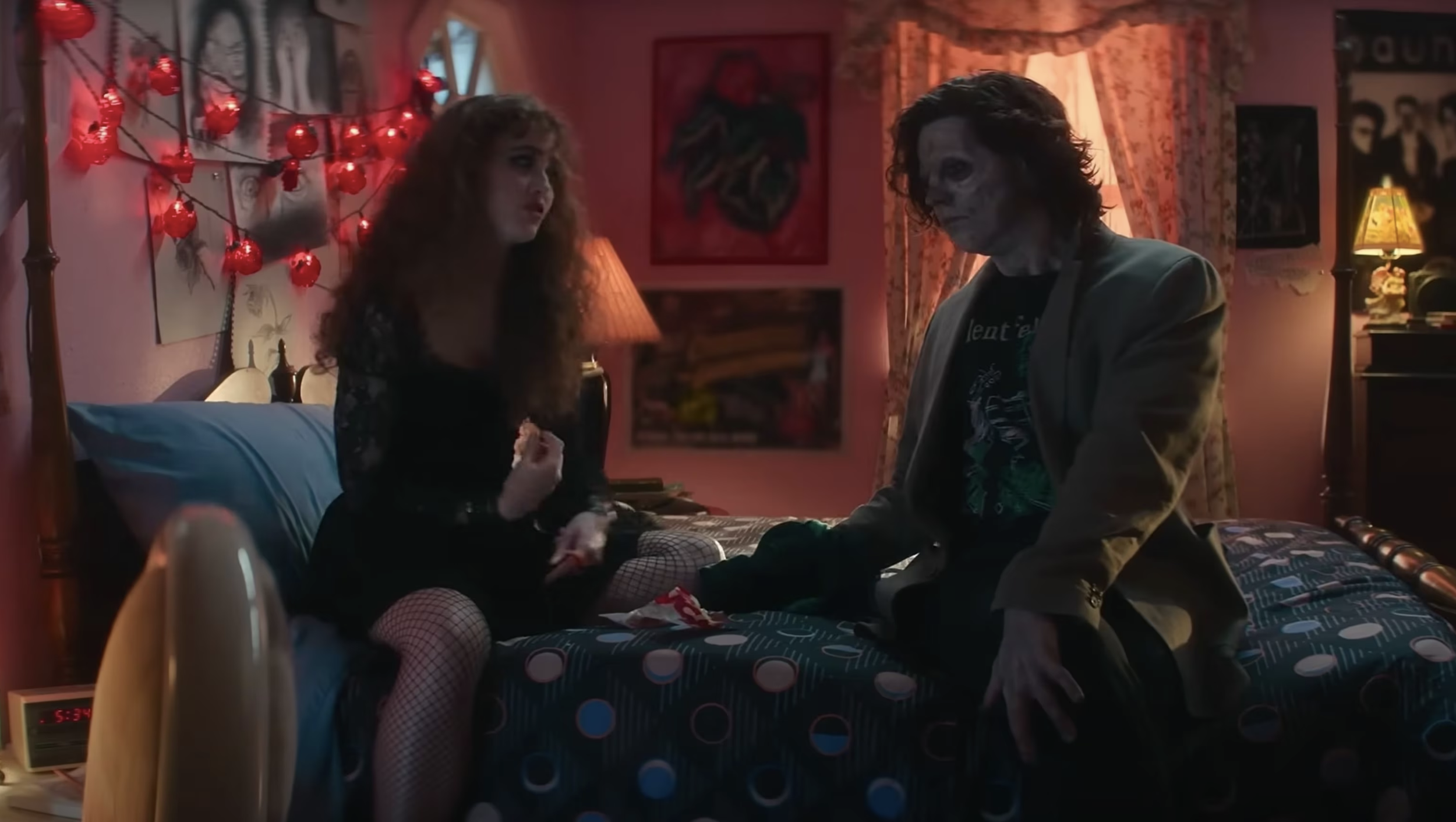DUNE PART TWO
Directing: A-
Acting: A-
Writing: B+
Cinematography: A
Editing: B+
Special Effects: A
The word “iconic” has been overused for decades. For this reason, I don’t ever use it. Maybe Dune Part Two is the exception that proves the rule. There is a moment in this film that is so visually iconic, it looks like the cover of a pulp science fiction novel come to life. There’s nothing kitschy about it, though; it’s very earnest—a key element of both these movies’ success.
I have to admit, I spent a fair amount of Dune Part Two thinking that it might not be living up to the hype. I wanted to be bowled over, overwhelmed by my love for it, and that wasn’t quite happening. The thing is, that’s just not how Denis Villeneuve operates. This is an artist with such unparalleled skill as a storyteller, you need to regard the piece in its entirely before you can properly judge it. This movie does not disappoint.
There’s something about Dune Part One, released in the fall of 2021—two and a half years ago—that makes it stand apart. I really liked that film when I first saw it, but I didn’t love it. And yet, every single time I rewatch that film, I appreciate it more than the last. I’ve seen it at least four times now, and I still notice new details every time.
It is for that reason that I expect the same thing with Dune Part Two. I’m not yet prepared to declare my undying love for it, but, much like Paul Atreides’s visions, I can see a near future where I’ve gotten to that point. I am genuinely looking forward to seeing this movie again, and will certainly be seeing it many times. This first go-round, I know there is much I did not catch, which is to be expected with films so well adapted from literary source material, but material I have not read. I have started to consider reading it, though.
I am especially looking forward to the point at which both Dune Part One and Dune Part Two are avaiable to watch together, back to back, as one film. Part One was two hours and 35 minutes long; Part Two is two hours and 46 minutes; the two combined, as one interrupted narrative, would make a five hour and 21-minute movie. When combined, maybe one of the greatest science fiction films ever made.
Has anyone else thought to compare this to Kill Bill Vol. I and Kill Bill Vol. II? Wildly different movies, obviously, but a key thing in common: a first part that ends abruptly, with much of the story clearly left to go—but incredible up to that point. Then the second, concluding part comes out, and even the first part is improved when regarded as part of the whole.
And there’s a lot new to discover in Dune Part Two, particularly when it comes to the cast. Zendaya had all of seven minutes of screen time in the first Dune, and as expected, here becomes a critical part of the story. She is great as expected as Chani, as is Timothée Chalamet as Paul—effectively embodying a young man who is maturing, for both good and for ill, before our eyes—but I simply must mention Austin Butler, as Feyd-Rautha, nephew to the grotesque Baron Harkonnen (Stellan Skarsgård). I could already tell from Elvis that he was a very good actor, but only when comparing that to his performance here does Austin Butler prove to be an astonishing talent. He’s not just the most eminently believable psychotic character in this movie, but he takes it a step further with an incredible vocal performance just similar enough to Stellan Skarsgård’s to make him believable as a relative of his.
There’s a lot of other new famous faces introduced to Part Two: Christopher Walken as the Emperor; Florence Pugh as his daughter, Stellan Skarsgård; Léa Seydoux as Lady Margot Fenring, one of the Bene Gesserit; even Anya Taylor-Joy as a flash-forward of Paul’s little sister. Unfortunately, none of these top-notch actors get much to work with, while Chalamet, Zendaya, Rebecca Ferguson (as Paul’s mother, Jessica), Josh Brolin and especially Javier Bardem get all the desert scenery to chew. Anya Taylor-Joy get about one minute, if that, of screen time.
It’s understandable, however, for them all to want to be part of something that is greater than the sum of its parts. There may not be any better example of that phrase than the two Dune movies—and, incidentally, unlike many other franchises, you absolutely need to have seen Dune Part One in order to fully appreciate, or possibly even understand, this movie. They really should be regarded as part of a collective whole, like Kill Bill or The Lord of the Rings.
The special effects, once again, are spectacular. Even more of this film takes place on the desert planet of Arrakis than the previous one did, and still Villenueve makes it a work of art, between the incredible cinematography and the seamlessly integrated visual effects. The fact alone that he manages to render characters riding sandworms without it looking ridiculous is an impressive accomplishment. The sandworms alone give the film an arresting, visual grandeur.
None of this would matter, of course, without such rich storytelling, in a fully realized, wholly separate universe. For much of this film, we see Paul learn the ways of the Fremen, the people native to the desert, fighting alongside them, protesting their insistence that he is their Messiah while also using that faith to his advantage. This film certainly has more to say about religion, a running subtext to the intergalactic political intrigue and fighting between different planetary clans. Which of these “houses” will ultimately gain the greatest power is incidental to the means by which this power is attained.
I will say, I could feel large swaths of the source material left unaddressed, at least not directly, while watching Dune Part Two. But, like Dune Part One, it is denslely packed with information, which no doubt gives greater satisfaction to those familiar with the books, and more easily picked up on by the rest of us with subsequent viewings. “Epic” is another word I try to avoid because of its overuse, but it is unavoidable here. This is an epic film for the 21st century, done right in a way it hasn’t been for decades, a classic that might just be beloved for generations to come.
Just when you wonder when there will be shock and awe . . . it comes.
Overall: A-





